“I remember,” said St. Ephraim of Katounakia, “that I was astonished by everywhere in the Holy Lands, but when I went to the Cave of Bethlehem, there, my heart was broken! It was torn into a thousand pieces! And I said, ‘how was God born in this place, in this cave, without any consolation, like one thrown out of the city? This God Who could make anything for Himself, but, without complaint, far from every worldly comfort, during the night (and the coldest night of the year), the longest night of the year, in a totally abandoned place, He Who created everything–Heaven and Earth–He was born in this place!
“And when I returned [to his cell on Mount Athos], I entered in and saw my blankets (what blankets did He have?), and I saw what I had, and I was ashamed, and said: ‘If God was born in that cave, how could I need all of these things?’ I saw pots and pans…”
Metropolitan Athanasios of Lemesou, who was relating the story, comments that: “If I were to describe his pots…not even our dogs would eat from them! And if I could describe his bed…not even our pigs would we put in them!
“But, he perceived his place to be a luxury, over the top. And from then on, when they would tell him: “Elder, your cell is small.” He would reply: “God was born in a cave. If I thought of God’s cave, well then, what could I say regarding my own?”
Source: www.full-of-grace-and-truth.blogspot.com

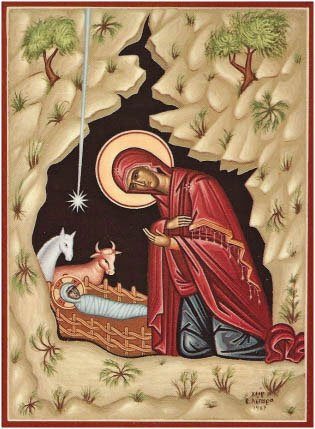
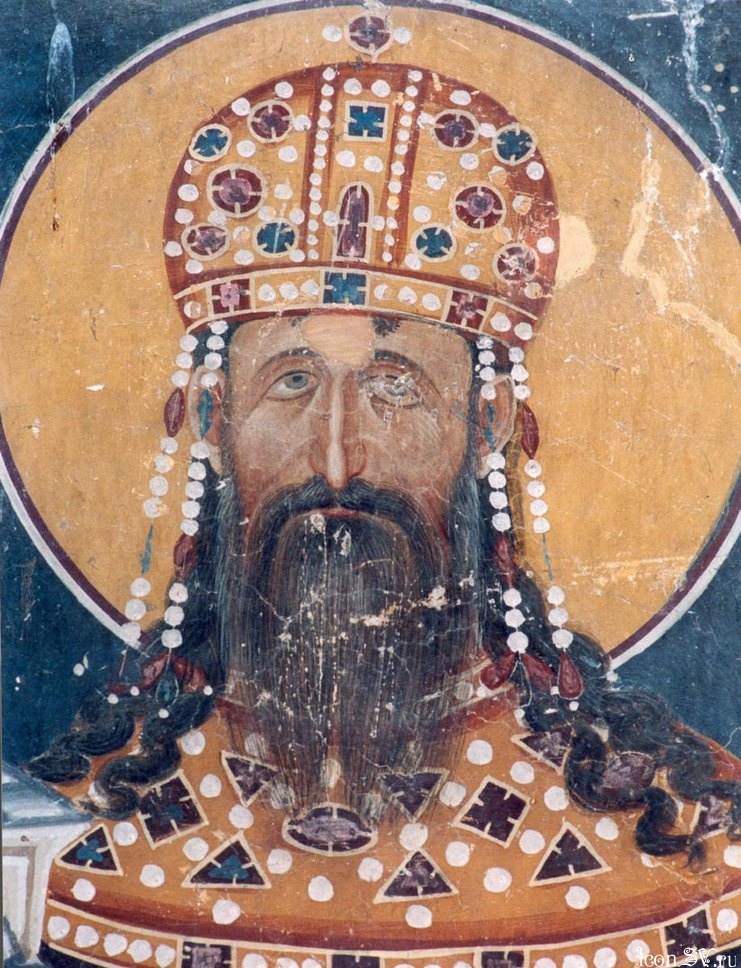
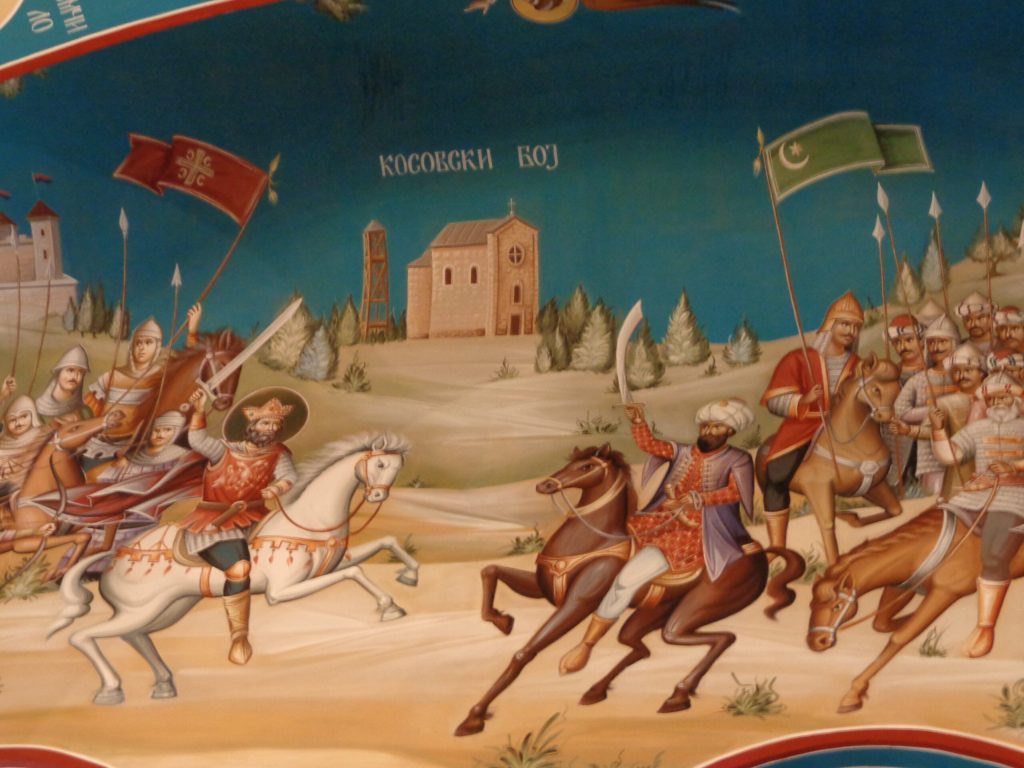
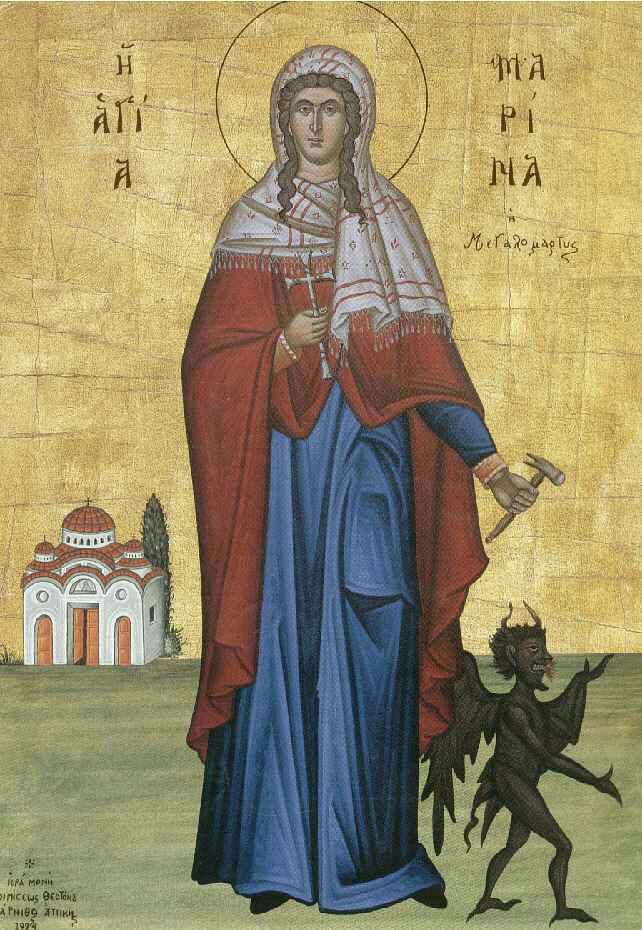 The Holy Great Martyr Marina was born in Asia Minor, in the city of Antioch of Pisidia (southern Asia Minor), into the family of a pagan priest. In infancy she lost her mother, and her father gave her into the care of a nursemaid, who raised Marina in the Orthodox Faith. Upon learning that his daughter had become a Christian, the father angrily disowned her. During the time of the persecution against Christians under the emperor Diocletian (284-305), when she was fifteen years old, Saint Marina was arrested and locked up in prison. With firm trust in the will of God and His help, the young prisoner prepared for her impending fate.
The Holy Great Martyr Marina was born in Asia Minor, in the city of Antioch of Pisidia (southern Asia Minor), into the family of a pagan priest. In infancy she lost her mother, and her father gave her into the care of a nursemaid, who raised Marina in the Orthodox Faith. Upon learning that his daughter had become a Christian, the father angrily disowned her. During the time of the persecution against Christians under the emperor Diocletian (284-305), when she was fifteen years old, Saint Marina was arrested and locked up in prison. With firm trust in the will of God and His help, the young prisoner prepared for her impending fate.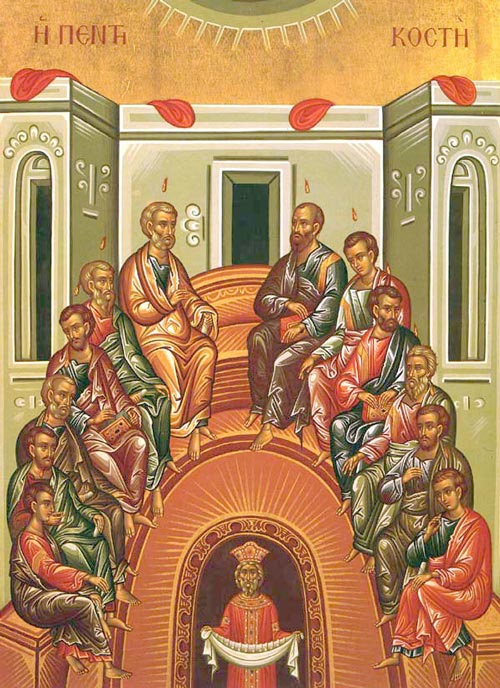
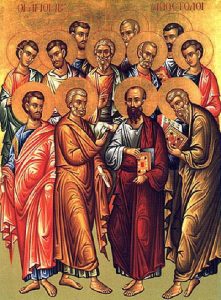
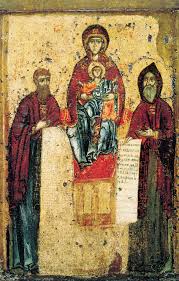
 What is most important on the holy day of Pascha is our Communion with the Risen Christ, which is principally manifest in the reception of the Holy Mysteries at the holy service, and for which we repeatedly pray in the services of Great Lent.
What is most important on the holy day of Pascha is our Communion with the Risen Christ, which is principally manifest in the reception of the Holy Mysteries at the holy service, and for which we repeatedly pray in the services of Great Lent.